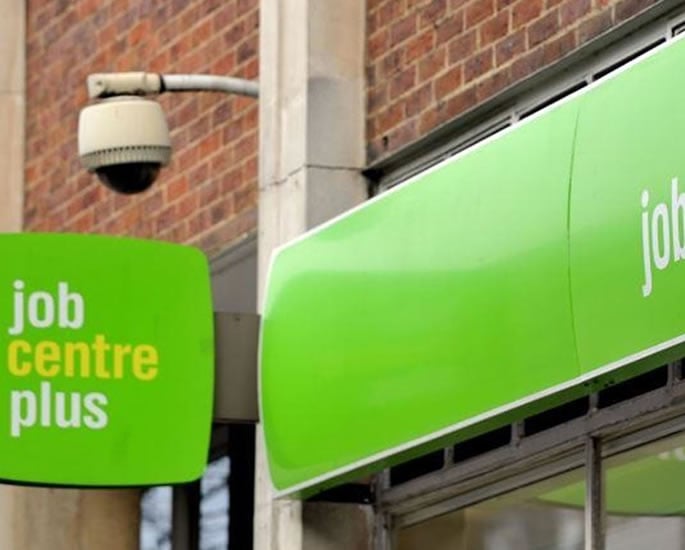"Right now, it feels like I'm letting them down"
For many British Asian graduates, the question “what’s next?” is met with a daunting and unexpected silence.
The path from university to a fulfilling career, a dream often nurtured by the sacrifices of previous generations, seems to have become overgrown and treacherous.
This leaves a growing number of graduates navigating the disheartening landscape of unemployment and, for some, the humbling process of applying for benefits.
This is not simply a case of post-university blues; it is a complex issue fuelled by a fiercely competitive job market, the rise of artificial intelligence in recruitment, and the immense cultural pressure to succeed.
The reality for many is a stark and difficult contrast to the bright future their degree once promised.
A Harsh Reality

Transitioning from the academic world to the professional one has always been a significant step, but for today’s graduates, it is proving to be a monumental challenge.
Government data showed that in 2024, the unemployment rate for graduates stood at 3.1%.
For British South Asian graduates, this pressure can be particularly acute.
Often the first in their families to attend university, they carry the weight of expectation and the hopes of their community on their shoulders.
The dream of a prestigious corporate job with a handsome salary is frequently the driving force behind years of diligent study.
Sameera*, a 23-year-old who graduated from Warwick University, feels this pressure intensely:
“Being the first in my family to go to university, there was this huge expectation.
“My parents sacrificed so much, and the plan was always: get a degree, get a good corporate job, make them proud.
“Right now, it feels like I’m letting them down, and that’s the hardest part. I just want to stand on my own two feet and build a life for myself.”
A significant factor contributing to this problem is the decline in graduate vacancies.
Overall, graduate vacancies are down 7% and this means that even the most talented and qualified graduates find themselves in a fiercely competitive environment.
The Demoralising Experience of Universal Credit

With over 630,000 graduates now claiming Universal Credit, it is evident that this is a widespread national issue.
Turning to the benefits system is a last resort for many. It is a step taken with a heavy heart and a sense of profound disappointment.
This is particularly true for those from British South Asian backgrounds, where cultural concepts of ‘izzat’ (honour) and a strong work ethic can make claiming benefits feel like a personal failure.
The statistic that 10.4% of people on Universal Credit in January 2025 were from the Asian/Asian British ethnicity group underscores the disproportionate impact this issue is having on the community.
Behind these numbers are real people with stories of struggle and resilience.
Arun*, who graduated in marketing but is applying for any job he sees to pay off his £35,000 student debt, said:
“The Jobcentre feels like one of the worst places you can go to. They are meant to help you into work but they don’t really do much.”
As a result, his five-minute appointments are more like a formality.
He continued: “Most of the time, they ask, ‘How’s the job search going?’
“I tell them I’ve applied for dozens of jobs and heard nothing, and they just say, ‘OK, we’ll see you next week’.”
Meanwhile, Dhiraj* struggled to find a job after graduation and he reluctantly went on Universal Credit.
He explained: “I didn’t want to go on benefits because I felt ashamed. The hard work at university felt like it was for nothing.
“It was my parents who encouraged me to go on benefits. I reluctantly applied but I always felt demoralised every week I had to go to the Jobcentre.”
It is a cycle of frustration that many graduates are all too familiar with.
The Unpaid Internship Trap

For those who avoid the benefits system, the struggle to find a job is no less real. The catch-22 of needing experience to get a job, but being unable to get a job without experience, is a familiar refrain.
This has led to the rise of the unpaid internship, a controversial practice that has become a rite of passage for many young people trying to get a foot in the door.
Kiara* decided to pursue her dream of a career in journalism but found herself in a frustrating loop, applying for hundreds of jobs with avail.
“It’s a never-ending cycle. You need experience for an entry-level job, but you can’t get experience without one. It feels like the only way in is to work for free.”
The pressure to gain experience can lead to exploitative situations.
Kiara was even offered a volunteer role where she would have to pay the organisation for the privilege.
She reflected: “My parents wanted me to go into something stable like finance.”
“But they saw my passion for journalism and how hard I was trying, so they’ve been incredibly supportive.
“Still, there’s always that worry in the back of my mind, that I should have picked the ‘safer’ path.”
Meanwhile, people like Kamal* are put off from claiming benefits due to the cultural implications.
He admitted: “I haven’t applied for Jobseeker’s Allowance, even though I’m probably eligible.
“In our culture, there’s a certain family honour to uphold. Relying on benefits… it just feels like admitting defeat, not just for me, but for my family.”
A Saturated Market

The challenges faced by graduates are not just down to a lack of experience.
Broader economic and technological forces are at play, including the increasing use of artificial intelligence in recruitment.
Many graduates report a dehumanising experience of being rejected by AI bots before they have even had a chance to speak to a human being.
Simran* expresses a common frustration: “Honestly, the way these companies treat applicants is just disgraceful.
“You spend hours on applications, go through three or four stages, jumping through every hoop they set, all to be met with complete silence. Not even a rejection email. It feels incredibly dehumanising.”
The sheer volume of applications for each job is another major hurdle.
Jack Kennedy, a senior economist at Indeed, said the figures underlined a “continued gradual softening rather than a nosedive” in the labour market.
He said: “Despite the UK labour market holding out overall, new entrants like graduates face a challenging time in securing a first rung on the ladder.
“This signals a wider landscape of employers holding on to existing staff, while some observers contend that entry-level roles in professional occupations are particularly exposed to AI displacement.”
The journey from graduation to employment has become a challenging and often disheartening one for many young people in the UK.
For British South Asian graduates, the cultural and familial pressures to succeed can make the reality of unemployment and benefits a particularly bitter pill to swallow.
The stories of graduates like Dhiraj, Arun and Sameera are a powerful reminder of the human cost of a fiercely competitive job market and a system that can often feel more like a hindrance than a help.
Their experiences highlight a generation caught between the high expectations of their heritage and the harsh realities of the modern economy.
The question “what’s next?” remains, but it is one that we as a society must answer collectively, by creating a more supportive and equitable environment for our young people to build their lives and fulfil their potential.





























































